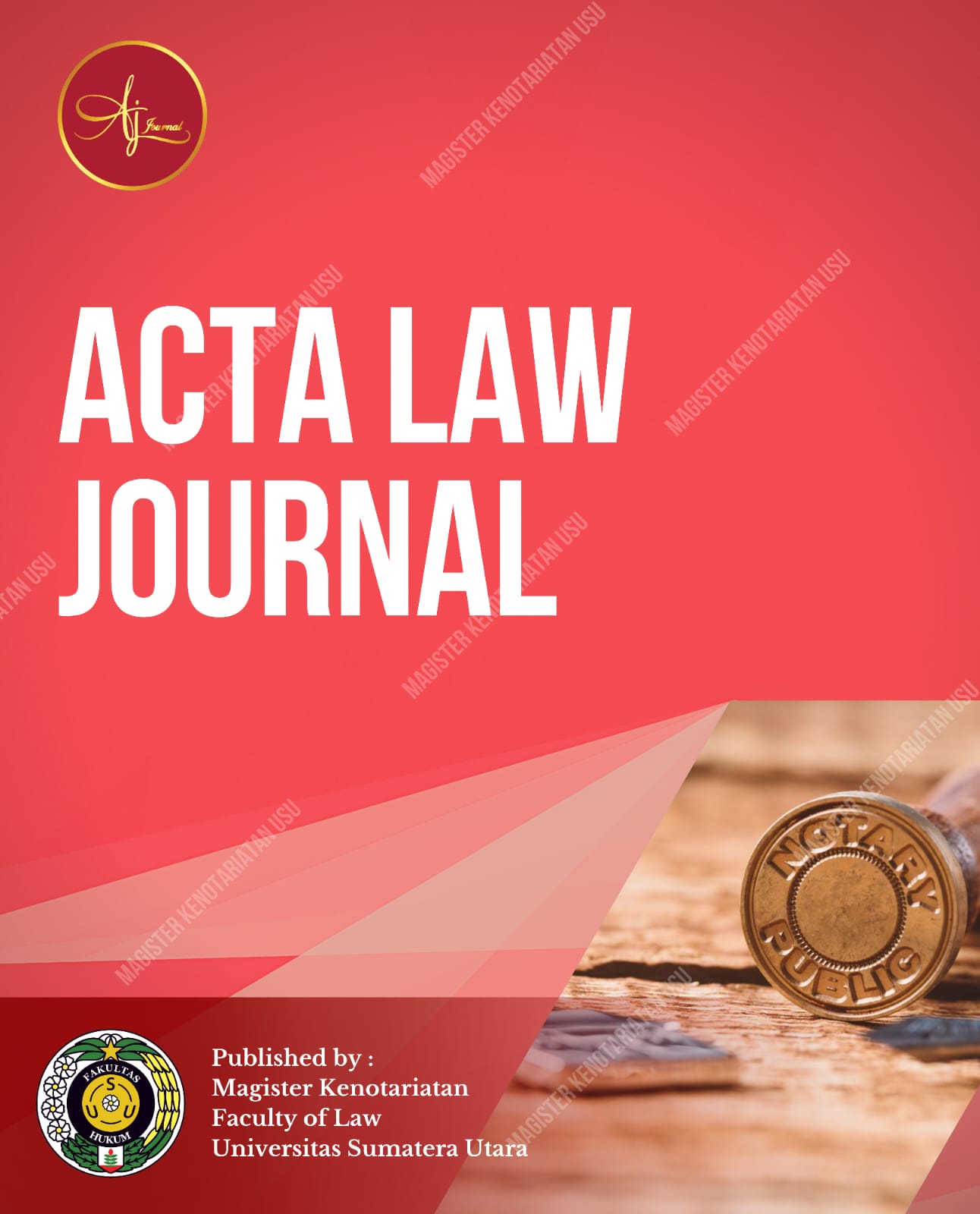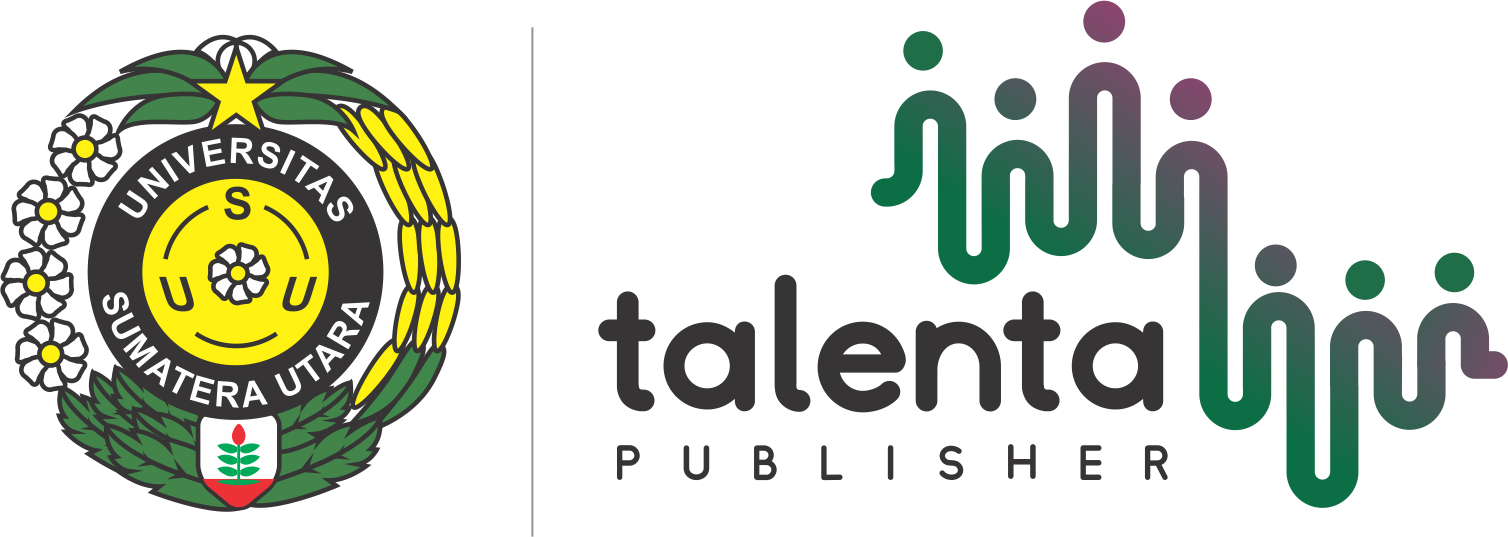Aspek Hukum Tanggung Jawab Pihak Perantara Kepada Konsumen dalam E-Commerce
DOI:
https://doi.org/10.32734/alj.v1i1.9829Keywords:
E-Commerce, Intermediary, Presumed LiabilityAbstract
The activities of citizens and governments are increasingly through electronic system around the worlds. Improvement of information technology through electronic commerce has been implemented in Indonesia. Internet users in Indonesia in 2022 have reached around 210 million people who are related to the using of e-commerce. However, intermediaries as business actors still have weaknesses in conveying uncertain marketing information to their consumers. The research method used the prescriptive normative. The data analyzed the presumed liability of intermediaries to consumers in marketing information through e-commerce. This study explains the existence of e-commerce intermediaries who provide prices higher than the market price, the existence of e-commerce intermediaries who do not send the right goods that to be chosen by consumers, and e-commerce intermediaries aren’t provided clear confirmation to the seller for payments made by consumer. Legal liability is the main obligation of e-commerce intermediary, so it showed the development of technology and communication for the community. The presumed liability of the intermediary e-commerce in the application media to consumers, increasingly requires the validity of electronic contracts as transactions in e-commerce are carried out properly and legally communication continues to run smoothly to the seller so that the delivery of goods also has no errors from the seller to the consumer. The application of the concept of presumed liability that occur from application media or electronic systems is increasingly needed in Indonesia. Indonesia can also produce technology and communication developments, that enhanced the development of the national economy in society.
Downloads
References
Atmasasmita, Romli. “Tiga Paradigma Hukum Dalam Pembangunan Nasional.†Jurnal Hukum Prioris 3, no. 1 (2012): 3.
Budhijanto, Danrivanto. “Peran Hukum Telekomunikasi Terhadap Implikasi Konvergensi Teknologi Informasi Dan Komunikasi.†Jurnal Dinamika Hukum 14, no. 1 (2014): 135–36.
Endeshaw, Assafa. Hukum E-Commerce Dan Internet Dengan Fokus Di Asia Pasifik. Pustaka pelajar, 2007.
Friedman, Lawrence M. Sistem Hukum : Perspektif Ilmu Sosial. Nusimedia, 2019.
Hadiarianti, Venantia Sri. Langkah Awal Memahami Hukum Perdagangan Internasional Dalam Era Globalisasi. Penerbit Universitas Katolik Indonesia Atmajaya, 2019.
Hanim, Latifah. ““Perlindungan Hukum Bagi Para Pihak Dalam E-Commerce Sebagai Akibat Dari Globalisasi Ekonomi†1, no. 2 (2014): 2.
Henry.P, Panggabean. Penerapan Etika Hukum Bisnis Dalam Sistem Peradilan Indonesia. Jakarta: Jalan Permata Aksara, 2019.
Hutabarat, Samuel M.P. Sistem Hukum, Globalisasi Dan Keabsahan Kontrak. Depok: Rajawali pers, 2020.
Isnaeni, Moch. Perjanjian Jual Beli. PT Refika Aditama, 2016.
Jayani, Dwi H. “Kredivo: 79% Masyarakat Menggemari Kredit Digital,†June 21, 2022. https://databoks.katadata.co.id/datapublish/2019/07/05/kredivo-79-masyarakat-menggemari-kredit-digital.
Juwenie, J Sumardi, Miru A, and Hasbir Paserangi. “Consumer Protection in E-Commerce Transactions in Indonesia.†Journal of Law, Policy and Globalization 47 (2016): 132.
Kenneth W, Clarkson. Business Law (Text and Cases): Legal, Ethical, Global, and Corporate Environment- 12th Edition. Vol. 2. Canada: Cengage Learning, 2012.
Mukti, Fajar, and Yulianto Achmad. “Dualisme Penelitian Hukum: Normatif & Empiris,†153. Pustaka pelajar, 2010.
Munir, Nurdiman. Pengantar Hukum Siber Indonesia. Raja Grafindo Persada, 2017.
Ramli, Ahmad M. Cyberlaw Dan Hak Kekayaan Intelektual Dalam Sistem Hukum Indonesia. Bandung: PT.Refika Aditama, 2006.
Ratnadewi, Ni Nyoman Ernita. “The Practice of E-Commerce Is Regulated under Law Number 11 Year 2008.†Jurnal Ius 2, no. 5 (2014): 385–86.
Renouw, Dian Mega Arianti. Perlindungan Hukum E-Commerce : Perlindungan Hukum Pelaku E-Commerce Di Indonesia,Singapura Dan Australis. Yayasan Taman Pustaka, 2017. https://books.google.co.id/books/about/Perlindungan_hukum_e_commerce.html?id=FURFswEACAAJ&redir_esc=y.
Santoso, Budi. Keagenan (Agency) : Prinsip-Prinsip Dasar, Teori, Dan Problematika Hukum Keagenan. Bogor: Ghalia Indonesia, n.d.
Simamora, Y.Sogar. Hukum Kontrak: Kontrak Pengadaan Barang Dan Jasa Pemerintah Di Indonesia. Surabaya: Laksbang Justitia, 2003.
Sirlo. “7 Perbandingan Mobile Website Dengan Mobile Application.†Accessed June 21, 2022. , https://www. sirclo.com/7-perbandingan-mobile-website-dengan-mobile-app/.
Sjahputra, Iman. Perlindungan Konsumen Dalam Transaksi Elektronik : Ditinjau Dari Perspektif Hukum Perlindungan Konsumen Dan Hukum Siber. Alumni, 2010.
Suharnoko. Hukum Perjanjian: Teori Dan Analisa Kasus. Jakarta: Kencana, 2008.
Suseno, Sigid. Yurisdiksi Tindak Pidana Siber. Refika Aditama, 2012.
SusiloAndi. Panduan Pintar Ekspor Impor. Transmedia Pustaka, n.d.
Suyanto, M. Strategi Periklanan Pada E-Commerce Perusahaan Top Dunia. Yogyakarta: ANDI, 2010.
Triani, Ni Nyoman Alit. “Penerapan Strategi It E-Commerce Sebagai Peningkatan Persaingan Bisnis Perusahaan.†Akrual : Jurnal Akuntansi 3, no. 2 (n.d.): 209–24.
Widijawan, Dhanang. Dasar-Dasar Hukum Kontrak Bisnis : Transaksi Dan Sistem Elektronik (UU ITE Perubahan No.19/2016). CV Keni Media, 2017.
Downloads
Published
Issue
Section
License
Copyright (c) 2022 Stella Stella, Budiman Ginting, O.K. Saidin, T.K.D. Azwar

This work is licensed under a Creative Commons Attribution-ShareAlike 4.0 International License.











